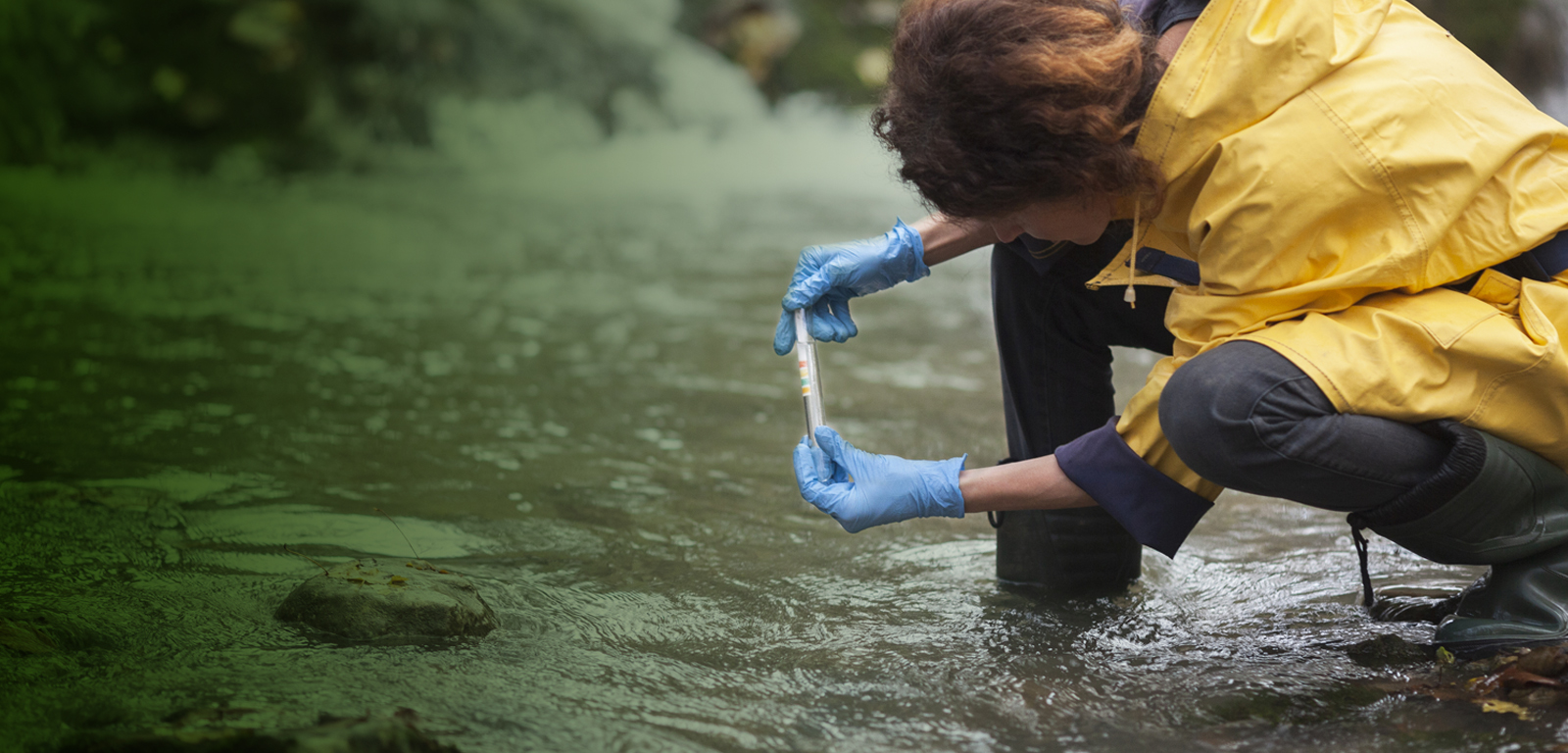Subject
Ecology in Aquatic Systems
General details of the subject
- Mode
- Face-to-face degree course
- Language
- English
Description and contextualization of the subject
All organisms are not equal when exposed to environmental contamination. Inter- and intra- specific variation in responses to pollutants triggers a cascade of effects, affecting biodiversity and its resilience. These effects will be presented from physiological functions up to populations demography and genetics, through life-history traits and behaviour.Aims
¿ To provide wareness and understanding of organisms response to environmental contamination from individual to meta-populations.
Objectives
At the end of the Unit, you should:
1. Understand the dynamics of pollutants in the living compartment of ecosystems.
2. Grasp the physiological mode of action of the main types of pollutants and their effect on traits at the level of the whole organism.
3. Project the consequences at the population level, while accounting for evolutionary forces (selection, heredity).
All organisms are not equal when exposed to environmental contamination. Inter- and intra- specific variation in responses to pollutants triggers a cascade of effects, affecting biodiversity and its resilience. These effects will be presented from physiological functions up to populations demography and genetics, through life-history traits and behaviour.
Teaching staff
| Name | Institution | Category | Doctor | Teaching profile | Area | |
|---|---|---|---|---|---|---|
| ORTIZ ZARRAGOITIA, MAREN | University of the Basque Country | Profesorado Agregado | Doctor | Bilingual | Cellular Biology | maren.ortiz@ehu.eus |
Competencies
| Name | Weight |
|---|---|
| Que el estudiante sepa y entienda los conceptos teóricos de los ciclos biogeoquímicos, así como los aspectos prácticos de los mismos y sus aplicaciones. | 16.0 % |
| Que el estudiante sepa y entienda los conceptos, práctica y aplicaciones de la evaluación integral de la salud de los ecosistemas (acuáticos y terrestres) en un ambiente cambiante y sometido a fuentes múltiples de estrés ambiental, incluidos los contaminantes químicos. | 16.0 % |
| Que el estudiante conozca los mecanismos de resistencia de los organismos vivos (tolerancia, resistencia, resiliencia, adaptación, plasticidad, etc.) frente contaminantes químicos ambientales. | 16.0 % |
| Que el estudiante conozca los principales problemas que afectan a la investigación ambiental aplicada | 16.0 % |
| Que el estudiante sea capaz de diseñar y elaborar modelos numéricos, estadísticos y computacionales en lo referente a los ciclos biogeoquímicos de los contaminantes químicos ambientales, sus efectos sobre los seres vivos y los procedimientos de evaluación de riesgo e impacto. | 16.0 % |
| Que el estudiante muestre destreza en la evaluación de la contaminación, de la calidad ambiental y de la salud de los ecosistemas, tanto desde el punto de vista académico como práctico. | 16.0 % |
Study types
| Type | Face-to-face hours | Non face-to-face hours | Total hours |
|---|---|---|---|
| Lecture-based | 22.5 | 34 | 56.5 |
| Seminar | 7.5 | 11 | 18.5 |
| Workshop | 7.5 | 11 | 18.5 |
| Applied fieldwork groups | 22.5 | 34 | 56.5 |
Training activities
| Name | Hours | Percentage of classroom teaching |
|---|---|---|
| Classroom/Seminar/Workshop | 37.0 | 40 % |
| Field practicals | 56.5 | 40 % |
| Lectures | 56.5 | 40 % |
Assessment systems
| Name | Minimum weighting | Maximum weighting |
|---|---|---|
| Drawing up reports and presentations | 60.0 % | 60.0 % |
| Written examination (theory) | 40.0 % | 40.0 % |
Learning outcomes of the subject
At the end of the Unit, you should be able to:1. Mobilize classical concepts in ecology to interpret the effect of pollutants on populations.
2. Make use of state-of-the-art modelling tools to predict the effects of pollutants on population dynamics and evolution.
Temary
Topics covered include:Metabolism and energetic status
Life-history strategies
Population dynamics (including metapopulations) and demogenetics
Bibliography
Basic bibliography
M.C. Newman. 2014. Fundamentals of Ecotoxicology: The Science of Pollution. CRC Press.M.C. Molles, A.A. Sher. 2018. Ecology: Concepts and Applications. McGraw-Hill Higher Education.
T. Jager. 2019. Making Sense of Chemical Stress. Application of Dynamic Energy Budget Theory in Ecotoxicology and Stress Ecology. Version 2.0. Leanpub. https://leanpub.com/debtox_book.


